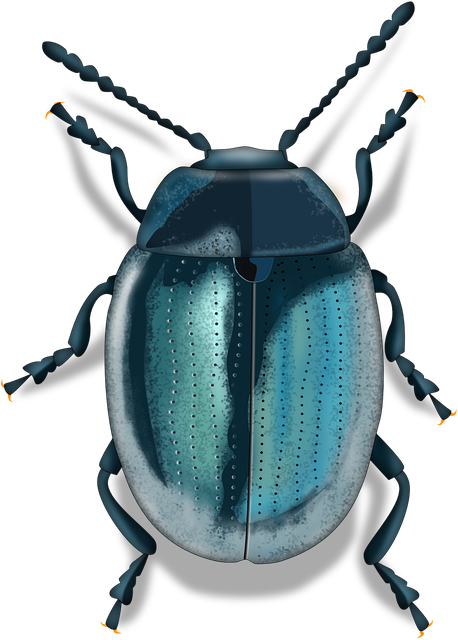Humane pest control offers safe, ethical, and environmentally friendly alternatives to chemical pesticides, focusing on prevention, inspection, and targeted interventions like trapping, repellents, and biological controls. Traditional methods raise ethical concerns due to non-target organism impacts and human health risks, often leading to chemical dependency and pest resistance. Effective pest treatments that prioritize sustainability and holistic solutions are crucial for preserving biodiversity, protecting public health, and ensuring safe living spaces. Collaborating with certified professionals ensures these effective pest treatments are implemented responsibly, fostering a healthier balance between humans and nature.
In today’s world, adopting humane and ethical practices in pest control is not just a moral responsibility but a necessity. As we strive for a more sustainable future, understanding the impact of traditional pest management methods on both human health and the environment becomes paramount. This article explores innovative, effective pest treatments that prioritize safety and ethics without compromising results. We delve into the principles behind humane pest control, address common ethical concerns, and guide you in choosing certified professionals committed to these responsible practices.
Understanding Humane Pest Control: Principles and Goals
Humane pest control is an approach that prioritizes the safe and ethical treatment of pests while minimizing harm to non-target species, humans, and the environment. This method goes beyond traditional chemical pesticides, offering a range of effective pest treatments that are both environmentally friendly and humanely administered. The key principles revolve around prevention, inspection, and targeted intervention, ensuring that pest populations are managed without causing unnecessary suffering or ecological disruption.
The primary goals include identifying and addressing the root causes of pest infestations, such as eliminating food sources, repairing structural vulnerabilities, and maintaining clean environments. By employing non-lethal methods like trapping, repellents, and biological control agents, humane pest control aims to reduce the reliance on toxic chemicals, fostering a healthier and more sustainable ecosystem. These strategies not only protect public health but also preserve biodiversity, making them particularly appealing in residential, commercial, and industrial settings.
Common Ethical Concerns in Pest Management
Pest management has long been associated with harmful chemicals and brutal methods, sparking significant ethical concerns among consumers and environmental advocates. The primary worry revolves around the potential risks to non-target organisms, including beneficial insects, birds, and mammals, as well as the negative impact on human health and the environment.
Another crucial issue is the effectiveness of pest treatments. Many conventional methods claim to provide quick fixes but often fail to address the root causes of infestations, leading to a dependency on toxic substances. Moreover, these approaches may not be sustainable in the long term, as pests can develop resistance to chemicals over time, rendering them less effective and necessitating more powerful (and potentially more harmful) alternatives.
Innovative Effective Pest Treatments: A Humane Approach
In today’s world, humane and ethical pest control solutions are not just a moral responsibility but also a practical necessity. Traditional methods often rely on toxic chemicals that can be harmful to both humans and the environment. However, innovative effective pest treatments are reshaping the industry with their focus on non-lethal, eco-friendly alternatives. These advanced solutions employ strategic approaches such as biological control, where natural predators are introduced to target specific pests, and integrated pest management (IPM), which integrates multiple techniques to disrupt pest life cycles while minimizing the use of synthetic pesticides.
By embracing these innovative effective pest treatments, we can achieve robust pest control while preserving biodiversity and protecting public health. Such methods not only ensure the safety of homes and businesses but also contribute to a more sustainable future. This shift towards humane practices reflects a growing awareness that responsible stewardship of our environment is integral to maintaining a healthy balance in ecosystems and communities alike.
Implementing and Choosing Certified Professionals for Ethical Pest Control
When implementing ethical pest control, one of the crucial steps is choosing and collaborating with certified professionals who adhere to humane practices. These experts are equipped with the knowledge and skills to employ effective pest treatments while minimizing harm to non-target organisms, including local ecosystems and pets. They stay updated on the latest research and technologies, ensuring that the methods they use are both safe and environmentally friendly.
Certified professionals follow strict guidelines for handling and disposing of pesticides, reducing potential risks to human health and the environment. They offer tailored solutions, assessing each unique situation to determine the most effective pest treatments without compromising ethics or safety. By partnering with such experts, you contribute to a sustainable approach to pest management, promoting a healthier balance between humans and nature.
In conclusion, adopting humane and ethical pest control solutions is not just a moral imperative but also a strategic necessity. By understanding the core principles and addressing common ethical concerns, we can ensure these practices lead to effective pest treatments while preserving the well-being of both humans and the environment. Certified professionals play a pivotal role in implementing these ethical standards, making them an indispensable resource for sustainable pest management. Let’s embrace innovative approaches and choose methods that harmonize with nature, ultimately creating safer, healthier spaces for all.
